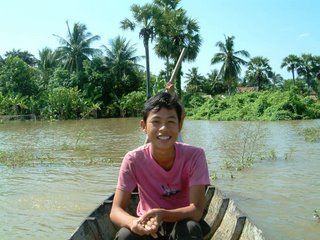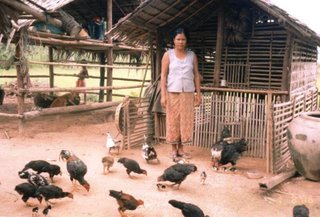Code breaking

I have recently started learning to read and write Khmer with my new teacher, ChhengAn. It is seriously tricky. There are no gaps between words and no punctuation (so no opportunity for me to get my red pen out!), and it is really difficult to follow text. There are 32 consonants, many of which sound exactly the same to me. For example, eight of the letters correspond to our ‘d’ and ‘t’ sounds, and are pronounced eight different ways, but I cannot distinguish between any of them. There are 24 vowels, which are mostly completely different from English sounds. To make matters worse, if the vowels come after certain consonants, they sound different again, and if a word starts with two consonants, then the second consonant is written under the first in a different sub-script form. There are two styles of printed Khmer, both of which I will need to learn. Vowels are placed before, above, below or all around the consonants, so when reading you have to read from left to right and back again to check the vowels. The script is so difficult that by the time I leave Cambodia I really don’t expect to be able to do much more than look words up in a dictionary.







